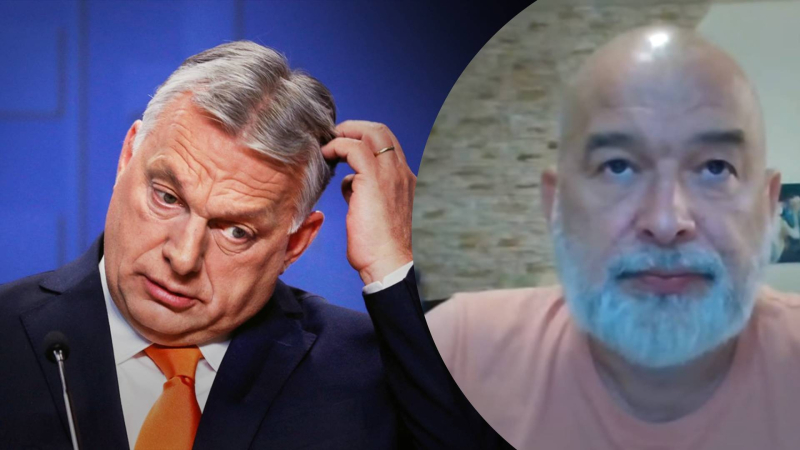The European Commission has recommended that the EU cut funding for Hungary over concerns about corruption. However, for Hungary the situation is much more serious than the possible loss of funding.
There are quite serious proposals to exclude Hungary from the European Union. Political strategist Mikhail Sheitelman spoke about this on Channel 24.
Hungary is threatened with expulsion from the EU
The expert notes: in order to exclude any country from the European Union, it is necessary to prove that its internal structure does not meet EU requirements.
Here we are declared a candidate for the EU, and now we know that we have a long way to go. Today our Prime Minister announced that we will try to negotiate and join in 2 years. And when Hungary joined, it had been negotiating for 9 years, if I'm not mistaken, – says Mikhail Sheitelman.
Then these negotiations were lengthy, since Ukraine's neighbor must meet all the entry criteria. Today it may not meet the criteria for democracy.
“How is this party still in power? We have no doubt that the Hungarians voted and this is their choice. But how, with whose money is this party financed? Such questions, I think, may arise in the European Commission,” the political strategist explained.
Hungary is the most to blame
The specialist does not rule out that the EU would turn a blind eye to the Hungarian issue, if the state itself in its policy did not go so far out of the common path. In particular, on the issue of sanctions against Russia.
Of course. There were negotiations on oil. Hungary said: “We cannot buy other oil, because our plants can only work on this grade.” Here the European Commission calmly went to meet Hungary, and they were given an exception, – says Mikhail Sheitelman.
According to him, this is an economic factor. Like, for example, with regard to taxes, when each country decides for itself how to conduct a tax policy.
“Yes, there are common things, for example, corruption. That is, there is a European standard that needs to be met. Suddenly, Hungary achieves in order not to impose sanctions against Patriarch Gundyaev. Why? Hungary is not even an Orthodox country,” the political consultant said.
Consequently, in such situations, there are signs of corruption. This is not evidence, but only signs. And then Hungary agrees to extend the sanctions against Russia only on the condition that the restrictions on Putin's three oligarchs are lifted.
In this situation, Sheitelman no longer sees an economic factor, but an obviously corrupt one. Corruption is unacceptable in the European Union.

